Intercept Telemed brings ICU doctors to remote areas. It was top healthcare startup
 MAY 18, 2020
MAY 18, 2020
In the best of times, America’s rural communities have little access to ICU specialist doctors, called intensivists. The COVID-19 crisis has magnified these critical shortages around the country.
Intercept Telehealth, based in Weston, brings intensivists into ICUs through telemedicine. It’s a niche business in an exploding market: Since the outbreak of the COVID-19 pandemic in the United States, telemedicine has emerged as a major tool to fight and contain the virus. Intercept Telehealth is the 2020 Miami Herald Pitch Competition winner in the healthcare category.
“Only about 15% of all ICU beds in America are being monitored through this kind of telemedicine platform and as you might imagine in the current environment of COVID, that has become an extreme problem,” said Dr. Diego Reino, a practicing transplant surgeon and the CEO of Intercept Telehealth. “We are only one of two companies that is providing this service … We think it will change medicine around the world.”
Reino has seen the problem in ICUs first hand. Even in large metro hospitals, especially in off hours, availability of ICU specialist doctors can be spotty.
“The goal is not to replace bedside clinicians but to augment care and to add a second line of support,” Reino said. “You can remotely camera into the rooms, and based on your two-way audio visual communication with the patient, you can make clinical decisions, you can look at the ventilator and make adjustments based on ventilator readings.”
Reino teamed with Robert Closius, a medical IT expert, to create the company in 2018. They joined FAU Tech Runway, an accelerator for tech companies in Boca Raton. There they were introduced to David Mednick, a Tech Runway mentor and experienced executive with healthcare companies. “As soon as I read the business plan and did a little research on it, I said this is a great idea. I don’t want to mentor this business — I want to be in it,” said Mednick, an investor and senior officer.
Mednick previously worked with Jack Karabees, who invested in and helped build and sell an early South Florida telemedicine company to Teledoc. Karabees joined as chief operating officer. “For me it was a great opportunity to use what I had learned in the telemed space. In the last eight weeks, all of a sudden we are appreciated,” Karabees said.
The software Intercept uses is provided by Philips, and has been shown to reduce mortality rates by 30 percent and shorten hospital stays. The company staffs a remote location that it calls its core. This allows intensivists to cover more beds and provide affordable 24/7 care to many hospitals. ICU costs alone make up about 1% of the U.S. GDP, Reino said.
“Intensivists save lives,” Mednick said. “We are a non-hospital staffing core, providing our services with licensed physicians, including in hospitals down here in South Florida. It gives us an opportunity to provide care wherever it’s needed, even in remote locations where they might not have an intensivist for miles.”
The cost of this 24/7 technology-enhanced care is generally less than $50,000 per ICU bed per year. This compares to much higher direct costs of staffing intensivists around the clock, assuming they could be found locally.
Intercept has a management team of six and nine intensivists working with it. The firm has a contract with a well-known university hospital and a number of health systems in the contract pipeline. The company’s startup costs of about $200,000 were financed by the team and friends-and-family funds.
Like other telemedicine providers, Intercept is seeing a surge in demand as remote doctoring has moved from nice-to-have to need-it-now. Because of the COVID-19 pandemic, the U.S. telehealth market is expected to witness over 80% year-over-year growth in 2020, according to analysis firm Research and Markets.
In normal times, signing a client with hundreds of ICU beds can take a year, said Mednick. Now it’s all about rapid response and setting up new clients with a system in just a few weeks. “It’s been a pivot in our plan,” Mednick said. “Philips has pivoted with us and they have upgraded their software so it can be implemented in modules. We can get a rapid response out to clients initially and then upgrade them at a later date to the full-care model with our predictive analytics and artificial intelligence that assist the physicians.”
The company originally projected it would close two contracts this year; and expects it will exceed that. Reino said Intercept has 90 ICU beds under contract but anticipates growth to about 300 beds in the next few months.
“We are creating the hospital of the future where we have physicians and critical care nurses working from a remote location dialing into the hospital’s ICU,” Mednick said. “And perhaps one day the hospital of the future will have a different skill mix on demand for exactly when they need it”
Source: https://www.miamiherald.com/news/business/business-plan-challenge/article242721121.html

